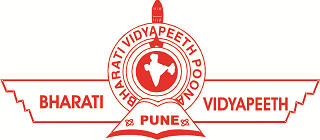PROGRAMMES OFFERED
- Name of the Programme – B .Tech. (Electronics and Communication Engineering)
- Nature of Programme – Full Time
- Duration – 4 Years
- Current Intake 180 Seats(First Year Intake) + 18 Seats(Lateral Entry Students)
About Us
The Department of Electronics and Communication Engineering has an approved annual intake of 180 students, making it the largest department at Bharti Vidyapeeth’s College of Engineering in terms of professor and student enrollment. The department is proud of its highly trained and qualified faculty members, many of whom have earned or are pursuing a Ph.D. in various fields of Electronics and Communication Engineering and are committed to imparting high-quality education. The labs, which are created by the teachers themselves, are well equipped, adapt to the needs of ambitious students, and foster an environment conducive to research and practical knowledge acquisition.
A considerable number of our talented students have been hired by prestigious government and private sector organizations. Thus, we believe that our students will be assets not only to our department and the institution, but also to the nation at large. To encourage extracurricular activities among students, the department has strong ties with various professional chapters and cells. The activities and competitions organized by these communities allow students to showcase their technical and fundamental electronics skills.
Vision
The department aspires to be an advanced center of learning by synergizing teaching, learning and research to produce competent engineers capable of serving the society.
Mission
DM1: To prepare graduates with sound technical knowledge and motivate them to explore emerging areas of research.
DM2: To create environment for the development of research and innovation activities.
DM3: To build strong relationships with industry through collaborative partnerships, student internships and research towards product development.
DM4: To instill ethical and professional values among graduates with awareness towards societal and environmental concerns.
Recent Notices
PEO1: To produce graduates with in-depth knowledge in Electronics and Communication Engineering, who can provide professional engineering solutions in societal and environmental context.
PEO2: To provide graduates having self-learning abilities and effective communication skills for working as an efficient team member.
PEO3: To provide graduates who are committed to professional ethics, responsibilities and standards of engineering.
1. Engineering knowledge: Apply the knowledge of mathematics, science, engineering fundamentals, and an engineering specialization to the solution of complex engineering problems.
2. Problem analysis: Identify, formulate, review research literature, and analyze complex engineering problems reaching substantiated conclusions using first principles of mathematics, natural sciences, and engineering sciences.
3. Design/development of solutions: Design solutions for complex engineering problems and design system components or processes that meet the specified needs with appropriate consideration for the public health and safety, and the cultural, societal, and environmental considerations.
4. Conduct investigations of complex problems: Use research-based knowledge and research methods including design of experiments, analysis and interpretation of data, and synthesis of the information to provide valid conclusions for complex problems.
5. Modern tool usage: Create, select, and apply appropriate techniques, resources, and modern engineering and IT tools including prediction and modelling to complex engineering activities with an understanding of the limitations.
6. The engineer and society: Apply reasoning informed by the contextual knowledge to assess societal, health, safety, legal and cultural issues and the consequent responsibilities relevant to the professional engineering practice.
7. Environment and sustainability: Understand the impact of the professional engineering solutions in societal and environmental contexts, and demonstrate the knowledge of, and need for sustainable development.
8. Ethics: Apply ethical principles and commit to professional ethics and responsibilities and norms of the engineering practice.
9. Individual and teamwork: Function effectively as an individual, and as a member or leader in diverse teams, and in multidisciplinary settings.
10. Communication: Communicate effectively on complex engineering activities with the engineering community and with society at large, such as, being able to comprehend and write effective reports and design documentation, make effective presentations, and give and receive clear instructions.
11. Project management and Finance: Demonstrate knowledge and understanding of the engineering and management principles and apply these to one’s own work, as a member and leader in a team, to manage projects and in multidisciplinary environments.
12. Life-long learning: Recognize the need for, and have the preparation and ability to engage in independent and lifelong learning in the broadest context of technological change.
A Graduate in Electronics and Communication Engineering will be able to perform:
PSO1: Analysis and Design of circuits for analog and digital systems
PSO2: Identify the role of interfacing devices in communication systems and create a prototype to meet the required functionality.


